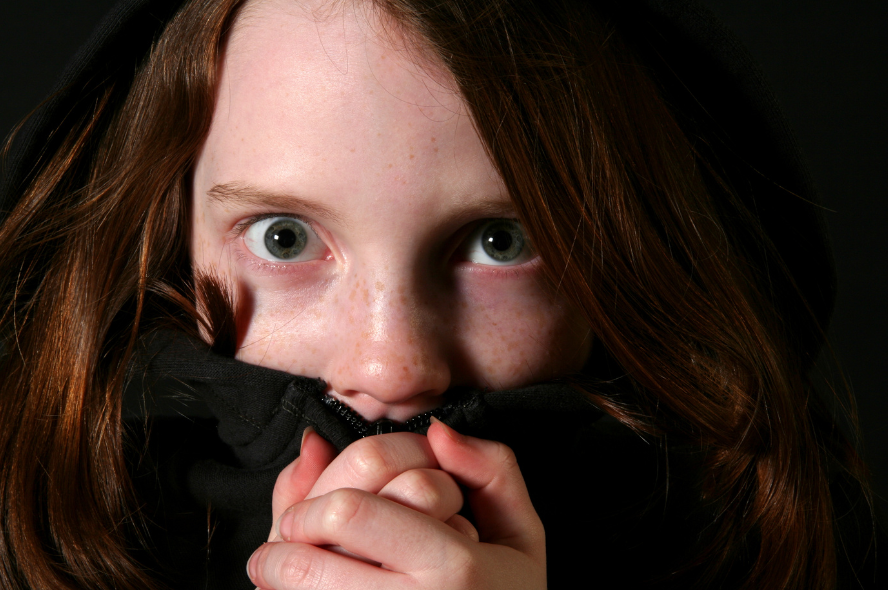Will My Child Grow Out of Their Fear of Being Sick?

Fear of being sick, or emetophobia, is a common concern among children, affecting not only their daily lives but also the dynamics within their families. As a parent, you might wonder whether your child will naturally grow out of this fear or if additional support is necessary. Understanding the nature of this fear, its origins, and how to effectively support your child is vital in addressing your concerns.
Understanding the Fear
The fear of being sick often begins with a negative experience related to illness, such as a traumatic episode of vomiting or witnessing someone else in distress. Children are particularly impressionable; if they see a sibling or a parent become ill, they may internalise that experience, leading to heightened anxiety. Additionally, children may fear the unknown, as illness can be perplexing and frightening, especially for younger ones.
Sometimes, a child may adopt fears from their parents. If a parent expresses significant anxiety about germs or illness, children may perceive this behaviour as normal, amplifying their own fears.
Will They Grow Out of It?
Many children do outgrow their fears as they mature and gain a better understanding of their emotions and the world. However, the timeline for this varies. Some children may find their fears dissipating naturally, while others may not. In fact, some individuals carry this fear into adulthood. For those who do not grow out of it, they often learn to manage their fear rather than eliminate it completely.
These individuals may develop coping strategies, such as avoiding certain situations or foods, practicing relaxation techniques or seeking reassurance from loved ones. While they may not be free from their fear, they can learn to navigate their lives without it significantly impacting their daily activities.
Impact on Daily Life
The fear of being sick can significantly affect a child’s daily life, leading to avoidance behaviours. They might refuse certain foods, miss school or avoid social events, resulting in isolation and missed opportunities. Furthermore, such fears can escalate to physical symptoms like stomach aches or headaches, creating a cycle of anxiety that is hard to break.
Families often find themselves adjusting their behaviours to alleviate the child’s fears, which can create a protective dynamic that, while well-intentioned, may inadvertently reinforce the fear.
My Experience
As a child therapist, I’ve worked with many children who struggle with the fear of being sick. One particularly memorable case involved a 10-year-old girl, who had developed a severe fear of vomiting after a particularly traumatic experience with the Noro virus. Her fear had escalated to the point where she refused to eat, missed school regularly and avoided social gatherings.
To help this child, I employed Neuro-Linguistic Programming (NLP) strategies, which focus on the connection between neurological processes, language, and behavioural patterns. First, we worked on identifying the specific triggers that heightened her anxiety. The child learned to articulate her fears, which helped her feel more in control.
Next, we used visualisation techniques. I guided Emma through a series of positive imagery exercises, where she imagined herself in situations that previously caused her fear—like being at a birthday party with cake and ice cream. We rehearsed scenarios where she felt safe and calm, reinforcing the idea that she could handle her fear.
Through these NLP techniques, the young girl began to develop a new relationship with her fear. She learned to recognise her anxiety as a feeling that could be managed rather than something that controlled her. Over time, she was able to attend school regularly, participate in social activities and even enjoy foods she once avoided.
Supporting Your Child
As a parent, there are several strategies you can use to support your child in overcoming their fear of being sick:
- Open Communication: Encourage your child to express their fears without judgment. Listening attentively and validating their feelings can help them feel understood.
- Educate Together: Help your child understand illness in a developmentally appropriate way. Use books or videos to demystify the concept of being sick, as knowledge can reduce fear.
- Gradual Exposure: Gradual exposure to the fear can be beneficial. Start with small steps—discussing minor illnesses or watching educational shows about health—and build up to more challenging topics as your child becomes more comfortable.
- Model Coping Strategies: Demonstrate healthy coping mechanisms when discussing health. Show your child how to manage anxiety through deep breathing, positive self-talk or engaging in calming activities.
- Set Realistic Expectations: Help your child understand that while being sick can be uncomfortable, it is a normal part of life. Encourage them to express their feelings and reassure them that they can handle it.
- Seek Professional Help if Needed: If your child’s fear is severe or persistent, consider consulting a child therapist. They can provide tailored strategies to help your child cope effectively.
- Encourage Socialisation: Encourage your child to participate in social activities, even if they feel anxious. Gradually exposing them to group settings can help build confidence and resilience.
- Be Patient: Overcoming a fear takes time. Be patient and supportive, celebrating small victories along the way to encourage your child to continue facing their fears.
The fear of being sick is a common issue among children that can be distressing for both the child and their family. While many children may outgrow these fears, some may require additional support or learn to manage their fear throughout their lives. By fostering open communication, providing education, and encouraging gradual exposure, parents can help their children navigate their anxiety. With patience and understanding, you can guide your child toward a healthier relationship with their fears, helping them thrive in their daily lives.

Leave a Reply